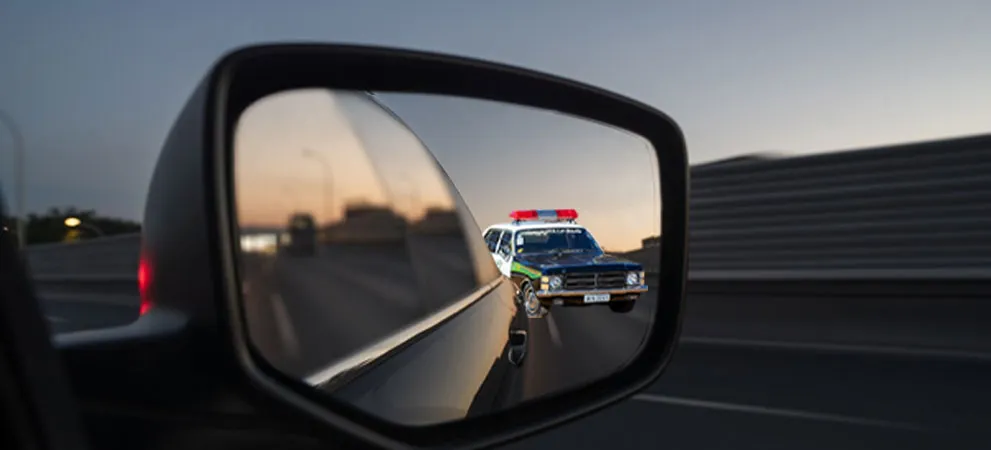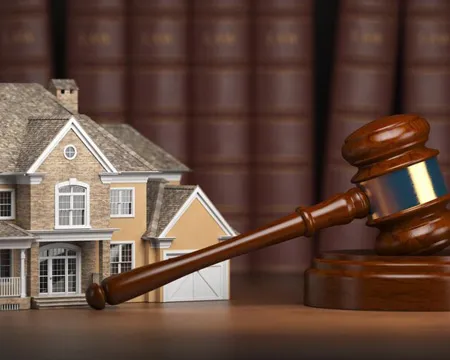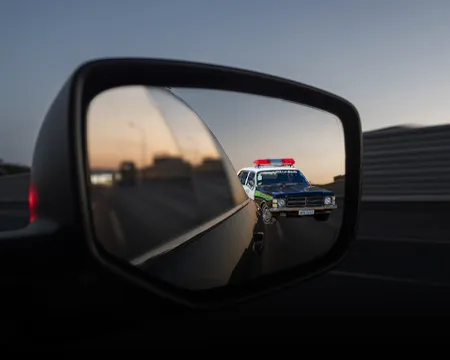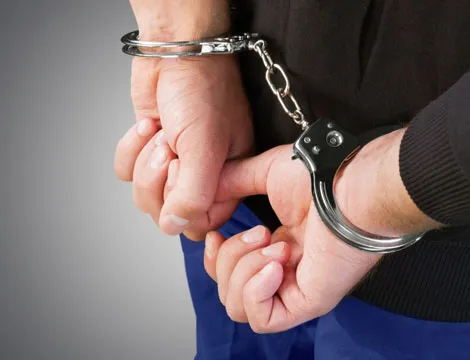Hickory DWI Lawyer
Hickory DWI Attorney

If you have been pulled over for driving while intoxicated (DWI), you can expect to face serious charges. Drinking and driving is a serious offense because it can put your life and the lives of others on the road at risk. If you are facing a DWI charge in Hickory, then you should get in touch with a Hickory DWI lawyer right away.
Our team at Cody Law Firm can provide you with fierce support if you are looking at a DWI charge. We know the ins and outs of the Hickory legal system and can closely review your case to develop a strong, relevant defense strategy.
What Is a DWI?
DWI stands for driving while intoxicated. In the United States, if you are 21 years of age or older, you cannot legally drive with a blood alcohol content (BAC) of 0.08% or higher. If you are under the age of 21 in Hickory, NC, you are not allowed to drive with a BAC above 0.00%, as consuming or purchasing alcohol under the age of 21 is against the law.
If a law enforcement officer pulls you over for suspicion of a DWI, you are expected to cooperate with their requests, like performing a breathalyzer test. Failure to cooperate can result in harsher punishments.
What Are Aggravating and Mitigating Factors for DWI?
After someone is charged with a DWI, they will have a sentencing hearing. At the hearing, evidence will be presented. Some of this evidence can aggravate or mitigate the charges.
- Gross Aggravating Evidence: This includes injuring another person, driving with a revoked license due to a previous DWI, and getting a DWI with a minor in the vehicle. A second-offense DWI is also a gross aggravating factor.
- Aggravating Evidence: Aggravating factors include driving with a BAC of 0.15% or more, colliding with another car, running away from the police, and driving more than 30 miles per hour over the speed limit.
- Mitigating Evidence: Mitigating factors are less severe than aggravating factors. Some examples include having a low BAC at the time of the charge or being under the influence of a prescribed drug. A mitigating factor can also be presented if the offender was also driving relatively safely at the time they were pulled over.
All the factors presented in a case will be heard by a judge. They are used to determine the DWI level as well as any resulting penalties, fines, and jail time.
What Are North Carolina’s Sentencing Levels?
North Carolina’s DWI system is unique. DWIs are ranked on a sentencing scale that ranges from 1-5, with 1 being the most severe and 5 being the least.
- Level 1: In this level, there are two or more gross aggravating factors. Fines can go up to $10,000, and jail time would be between 30 days and three years.Probation is possible in exchange for reduced jail time, but the person charged will still have a minimum amount of days to spend in jail, depending on the circumstances. Other penalties include drug and alcohol monitoring and treatment programs.
- Level 2: With a Level 2 sentence, there is one gross aggravating factor. The driver can face up to $2,000 in fines and between seven days and one year in jail. Jail time can be suspended if the driver agrees to monitored sobriety for 90 days. The driver will also be ordered to submit to drug and alcohol assessments and treatment programs. If this is a second offense in the last five years, community service will also be ordered.
- Levels 3-5: For these levels, there are typically no gross aggravating factors. The judge will determine which DWI level the offense is based on the mitigating and aggravating factors. If there is an equal balance of both, it will generally be a Level 4. If there are only mitigating factors, it will generally be considered a Level 5.If there are only, or mostly, aggravating factors, it will be ruled a Level 3. The maximum fines for these three levels range from $200 to $1,000. Jail time ranges from 24 hours to 6 months. Often, jail time may be substituted for community service.
What Is the Punishment for a DWI in Hickory?
If you are charged with a DWI, you will typically be charged with a misdemeanor. The penalties you will be looking at will depend on what class of misdemeanor your case is classified as.
If you are facing a DWI conviction in Hickory, you could be looking at punishments, including fines, jail times, and revoked driving privileges. The severity of these penalties will depend on your previous offense and the nature of the situation. For instance:
- If It’s Your First Offense: Most first-time offenses are ruled as a Level 3, 4, or 5 DWI. Fines and penalties depend on what level the offense falls under If you have never been convicted of a DWI before, you can expect to have to pay fines of up to $200 and spend up to 60 days in jail. You will also likely have your driver’s license suspended for 30 days.
- If It’s Your Second Offense: Most second offenses are classified as a Level 1, 2, or 3 offense. If you have had one previous DWI conviction, then you will face slightly harsher punishments than if this was your first offense. For instance, you might look at pricey fines of up to $2,000, between 7 days and one year in prison, and a license suspension of 1 year.
- Drivers must also have an ignition interlock device (IID) installed in their vehicle, where they will have to breathe into the device to test their alcohol level before the car will start. This device comes with a monthly fee that will be paid at the driver’s expense.
- If It’s Your Third or Subsequent Offense: Because each offense is considered a gross aggravating factor, most third offenses will be ruled as a Level 1 offense. It would, at minimum, be considered a Level 2. If you have had more than one DWI conviction, you can expect to pay up to $4,000 in court costs and fees, spend between 30 days and two years in jail, and see your license permanently revoked. You might also face a felony conviction depending on your criminal history and your circumstances. There is also a chance that your vehicle could be seized.
- You Are Underage: If you are under the age of 21 and you are facing DWI charges, you can expect to face fines up to $1,000 and 30 days of community service. You might also be looking at having to stay in a residential facility, attending treatment programs, electronic house arrest, and time in the county jail.
What Happens If I’m Stopped for a DWI?
If you are pulled over on suspicion of a DWI, an officer will likely administer a sobriety test. There are two types of sobriety tests: a field sobriety test and a portable breath test. With a portable breath test, you would have to blow into a portable device that detects your alcohol level. In a field sobriety test, an officer may ask you to perform one or more tasks to test your level of intoxication. These include walking in a straight line or standing on one leg while counting aloud.
When Is a DWI a Felony in Hickory?
In some cases, you might be looking at felony charges for a DWI. This would occur if there were factors that exacerbated the seriousness of the situation. For instance, you might be facing a felony charge if:
- You killed another person while you were intoxicated behind the wheel
- You have been convicted of 3 or more DWIs in the last ten years
- There was a person under the age of 18 in your vehicle when you were driving while intoxicated
If you are found guilty of a felony offense, you should be prepared for your life to turn upside down. You are going to have to deal with consequences like:
- At least one full year in prison
- Your license getting revoked for the rest of your life
- Seizure of your vehicle
- Having to wear a continuous alcohol monitoring device
- Damage to your reputation
- Difficulty finding a job
- Strained social relationships
Why Do You Need a DWI Lawyer in Hickory, NC?
If you had a DWI arrest, then you should get in contact with a Hickory DWI lawyer as soon as you can. Your attorney can immediately start looking at your case and reviewing all of the facts of what happened. They can give you informed legal advice on how you should approach the situation.
For instance, your lawyer might advise you to plead guilty, and then they can focus all of their efforts on negotiating a light sentence. On the other hand, your lawyer might advise you to plead not guilty and use evidence to defend yourself.
While you might start to despair and think that your situation is hopeless, there are actually many defense strategies that your lawyer can use to help you get off with no charges or to reduce your sentence. For example, your lawyer might fight to prove that:
- Your breathalyzer test was administrated incorrectly
- Your constitutional rights were violated when a law enforcement officer pulled you over or arrested you
- You take prescription medication that interfered with the breathalyzer
- There was a chain of custody issues when your blood samples and records were handled
- The sobriety tests you took were inaccurate
FAQs
Q: How Much Does a DUI Lawyer Cost in NC?
A: The cost of your DUI lawyer will depend on a number of factors. The amount of times you need to appear in court, the complexity of the case, and the level of offense will all factor into the cost. A typical, lower-level offense can cost around $2,500. A higher-level offense can cost up to $10,000 or more.
Q: Do I Need a Lawyer for a DWI in NC?
A: You are not required to have a lawyer for a DWI case in North Carolina. However, the laws are stricter in North Carolina in comparison to other states. The fines and penalties tend to be harsher, and the law can be complicated if you don’t have a legal background. For this reason, it is highly recommended that you hire a lawyer or ask one to be appointed for you.
Q: What Is the Process of a DWI in NC?
A: The general DWI process in North Carolina begins when you are pulled over during a traffic stop. Next, a sobriety test will be performed. Depending on the results, the officer will decide if you must go to the police station. If charged, you will be arrested and either sent home or to jail. You immediately lose your license for 30 days.
Once you are arrested, you should speak with a criminal defense attorney if you have one. Depending on your lawyer’s advice, they can either negotiate with the prosecutor or go to trial. If you are convicted or reach a plea agreement, you will receive your penalties and fines.
Q: Is a DWI or a DUI Worse in North Carolina?
A: In North Carolina, there is no distinction between a DUI (driving under the influence) and a DWI (driving while impaired). Nationally speaking, a DWI is seen as more serious than a DUI. A DWI is given no matter what substance the driver was under. In North Carolina, the charge is always a DWI, not a DUI. This rule will vary depending on the state you’re in.
A Dedicated Hickory DWI Lawyer on Your Side
No matter how severe your DWI charges are, you need to have an experienced lawyer guiding you through our complicated legal system. Without one, you might face a harsher sentence than you deserve and have to deal with the ramifications of this incident for years to come. Consulting with a capable DWI attorney can make your life a lot easier now and in the future.
Here at Cody Law Firm, we can assist you with every step of this stressful process. Right from the moment we meet you, we will start assembling a strong defense strategy that aims to get you an ideal outcome. Do not waste any more time. Contact us today to get started.






